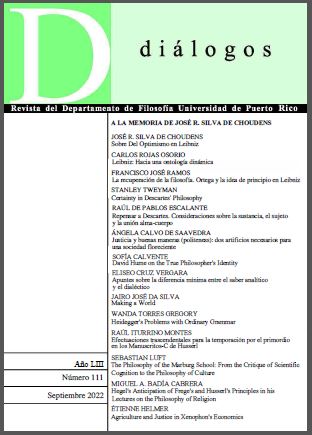Abstract
Hume’s theory of justice has been criticized for its narrow focus on the stability of external goods, securing private property. In Hume’s defense two strategies has been typically adopted: the first one, aims to show how his understanding of justice in the Treatise improved in later works, where justice includes references to fairness and rights. The second, seeks to explain the thin role of justice within Hume’s robust and pluralistic catalogue of virtues, as stemming from his belief about the importance of a proper balance and mixture of virtues in a perfect character as well as in a flourishing society. My purpose is to explore a third path, the artifice or politeness, designed as complementary to the rules of justice. Its effects are related with the moral demand of mutual recognition.

This work is licensed under a Creative Commons Attribution-NonCommercial 4.0 International License.

